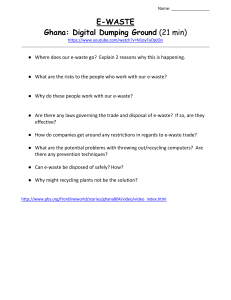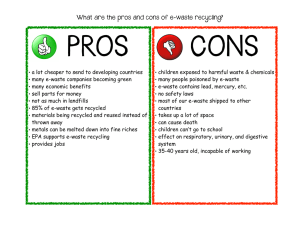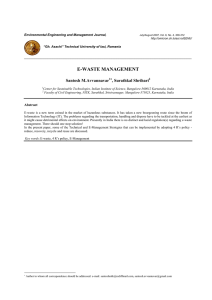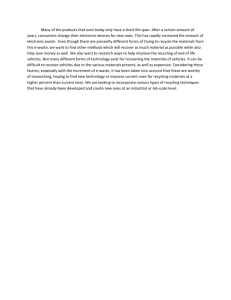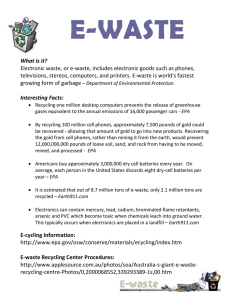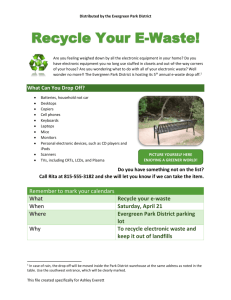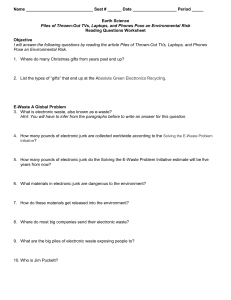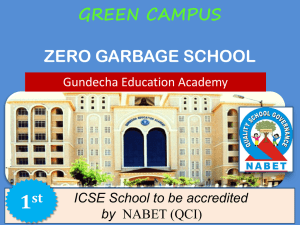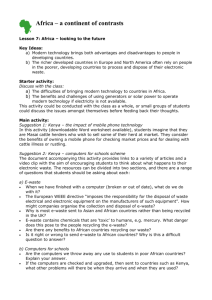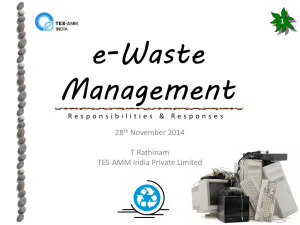Statement of India
advertisement
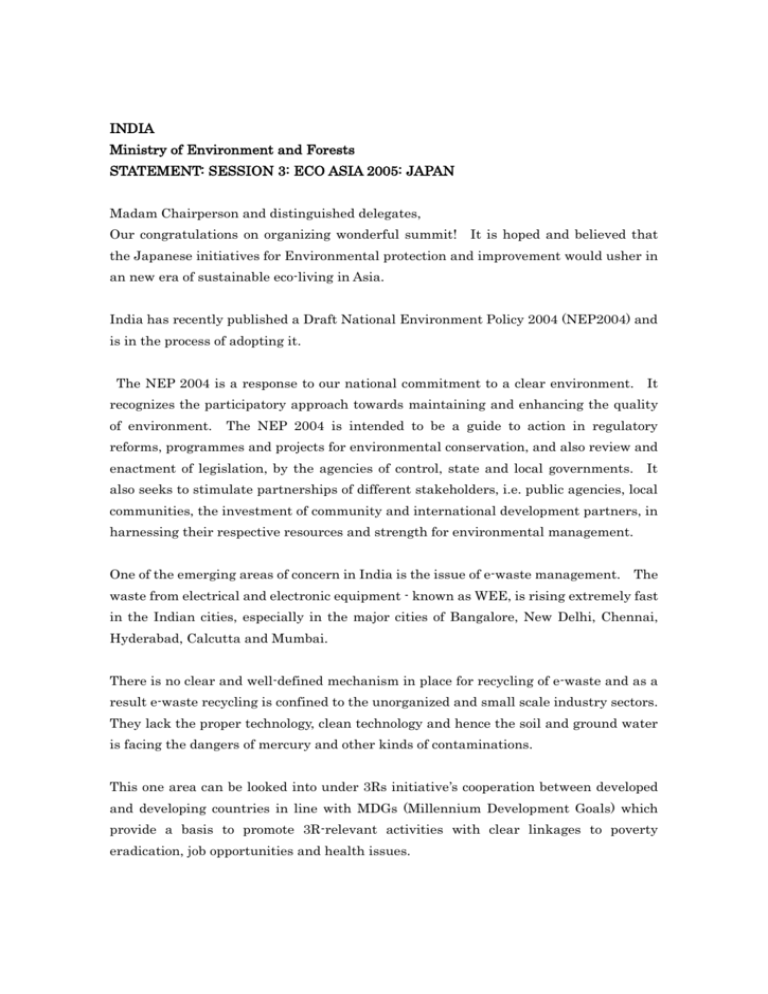
INDIA Ministry of Environment and Forests STATEMENT: SESSION 3: ECO ASIA 2005: JAPAN Madam Chairperson and distinguished delegates, Our congratulations on organizing wonderful summit! It is hoped and believed that the Japanese initiatives for Environmental protection and improvement would usher in an new era of sustainable eco-living in Asia. India has recently published a Draft National Environment Policy 2004 (NEP2004) and is in the process of adopting it. The NEP 2004 is a response to our national commitment to a clear environment. It recognizes the participatory approach towards maintaining and enhancing the quality of environment. The NEP 2004 is intended to be a guide to action in regulatory reforms, programmes and projects for environmental conservation, and also review and enactment of legislation, by the agencies of control, state and local governments. It also seeks to stimulate partnerships of different stakeholders, i.e. public agencies, local communities, the investment of community and international development partners, in harnessing their respective resources and strength for environmental management. One of the emerging areas of concern in India is the issue of e-waste management. The waste from electrical and electronic equipment - known as WEE, is rising extremely fast in the Indian cities, especially in the major cities of Bangalore, New Delhi, Chennai, Hyderabad, Calcutta and Mumbai. There is no clear and well-defined mechanism in place for recycling of e-waste and as a result e-waste recycling is confined to the unorganized and small scale industry sectors. They lack the proper technology, clean technology and hence the soil and ground water is facing the dangers of mercury and other kinds of contaminations. This one area can be looked into under 3Rs initiative’s cooperation between developed and developing countries in line with MDGs (Millennium Development Goals) which provide a basis to promote 3R-relevant activities with clear linkages to poverty eradication, job opportunities and health issues. Here it is pointed out that, as decided in the 3Rs initiative, the international cooperation may start with the sharing of experiences and capacity building activities. For this developed countries to take the initiative. We would like to inform the august gathering that India has conducted a series of National seminar workshops and brainstorming series on e-waste management. On the eve of World Environment Day, WED ’05, on 5th June has been organized in New Delhi a national level e-waste management brainstorming conference and its recommendations would help us shaping our future strategy. This is one area of concern, which requires proper attention. Future dialogues from developed countries are welcome. Among other areas, India still faces enormous challenges with regard to technology up gradation and sound management of hazardous wastes, biomedical wastes, municipal solid waste and other wastes. Of particular concern is the resource constraints faced by the small and medium scale industries both with regard to waste minimization as well as treatment technologies. So, the low-cost clean technologies for the small and medium sector is welcome. For e-waste management we need to kick-start it immediately with the cooperation of developed countries. India is interested in Bio-mass fuel boilers and energy generation through it. We would also like to have technical cooperation on bio-degradable plastics. These two areas have a great potential in India. Thanks very much for giving us this opportunity. We wish the conference a great success.

